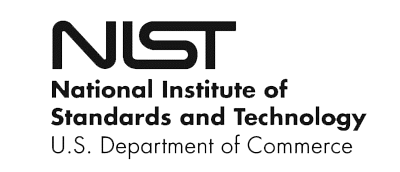Understanding NIST Compliance
by Jon Lober | NOC Technology
A Guide for Small to Midsize US Manufacturers
At a basic level, maintaining strong cybersecurity is all about protecting your business. But beyond this, ensuring your business meets industry standards is critical as well. For many manufacturing companies, particularly those dealing with federal contracts or sensitive information, maintaining NIST compliance is crucial.
What is NIST?

The National Institute of Standards and Technology (NIST) is a federal agency within the U.S. Department of Commerce. NIST develops a wide variety of standards, guidelines, and best practices to enhance security and promote innovation across various sectors. One of the agency's priorities is to provide a framework for managing and reducing cybersecurity risk.
For organizations, particularly those in manufacturing, NIST compliance often involves adhering to specific guidelines like NIST SP 800-171 or the NIST Cybersecurity Framework (CSF), which outlines a comprehensive approach to managing cybersecurity risks.
Who Needs to Maintain NIST Compliance?
NIST compliance is particularly important for:
- Federal Contractors: Any business that contracts with the federal government, especially in sectors like defense or aerospace, must comply with NIST standards to safeguard sensitive information.
- Organizations Handling Controlled Unclassified Information (CUI): If your business deals with CUI, compliance with NIST SP 800-171 is a requirement. For example, if you manufacture a component of a military-grade device, the design of that component itself may not be classified, but must be safeguarded to maintain national security.
- Small to Midsize Businesses in Regulated Industries: Manufacturers and businesses in the healthcare, finance, and critical infrastructure sectors may also need to adhere to NIST guidelines to ensure data protection. These institutions often handle massive amounts of PII (personally identifiable information), such as names, social security numbers, and banking information, and require extra measures to safeguard this data. While you may not be obligated to meet this standard, it is the most secure solution for your organization, and an easy one to implement—if you know what to implement.
- Any Organization Seeking to Strengthen Cybersecurity: Even if not mandated, businesses that aim to improve their cybersecurity posture can benefit from implementing NIST guidelines.
Comparing Cybersecurity Compliances
Understanding the various cybersecurity frameworks can help you determine the best fit for your organization’s needs.
NIST 800-171
- Type: Standard
- Focus: Protecting Controlled Unclassified Information (CUI) in non-federal systems.
- Who Needs It: Primarily federal contractors and organizations that handle CUI.
- Key Features: 14 families of security requirements, emphasizing access control, awareness training, incident response, and system integrity.
NIST Cybersecurity Framework (CSF)
- Type: Standard
- Focus: A voluntary framework that helps organizations manage and reduce cybersecurity risk.
- Who Needs It: Any organization, regardless of size or sector, looking to improve its cybersecurity posture.
- Key Features: Composed of five core functions: Identify, Protect, Detect, Respond, and Recover. It’s flexible and adaptable to various organizational needs.
NIST 800-53
- Type: Standard
- Focus: Comprehensive security and privacy controls for federal information systems.
- Who Needs It: Federal agencies and organizations that operate on their behalf.
- Key Features: Over 1,000 security controls across 18 control families, with a strong emphasis on compliance and risk management.
ISO 27001
Type: Framework
Focus: An international guide for information security management systems (ISMS).
Who Needs It: Organizations of any size looking to establish, implement, maintain, and continually improve an ISMS.
Key Features: Emphasizes risk management and the continuous improvement of security processes, with a certification process that provides third-party validation.
How to Remain NIST Compliant
Achieving and maintaining NIST compliance can seem daunting, but with a structured approach, it becomes manageable. Here are some steps to help your manufacturing business remain compliant:
1. Conduct a Risk Assessment
Identify and evaluate the risks to your organization’s data and systems. This assessment will inform your compliance strategy.
2. Implement NIST Guidelines
Adopt the relevant NIST publications that apply to your business. This might include implementing the password guidelines mentioned above and ensuring proper access controls (including physical access requirements/restrictions) HR policies, and required logging of personnel and visitors. While NIST isn’t entirely about IT protocols, at NOC, we are experienced with the standards and can assist with all aspects of compliance.
3. Develop Policies and Procedures
Create clear, documented policies and procedures around data protection, incident response, and user access. Make sure all employees are trained on these policies.
4. Regular Audits and Assessments
Periodically review and assess your compliance status. Regular audits will help you identify areas for improvement and ensure that your organization remains compliant over time.
5. Stay Updated
Cybersecurity is a rapidly changing field. Stay informed about updates to NIST guidelines and other regulations that may impact your compliance requirements.
6. Engage with Experts
If you find the process overwhelming, consider consulting with cybersecurity experts who can guide you through compliance requirements and help you develop a robust cybersecurity posture.
Conclusion
For many small to midsize businesses— and particularly manufacturers— maintaining NIST compliance is not just a regulatory requirement; it's a critical component of protecting sensitive information and building customer trust. If you have further questions about NIST compliance or need assistance in implementing these guidelines, feel free to reach out. Together, we can ensure that your business remains secure and compliant.







